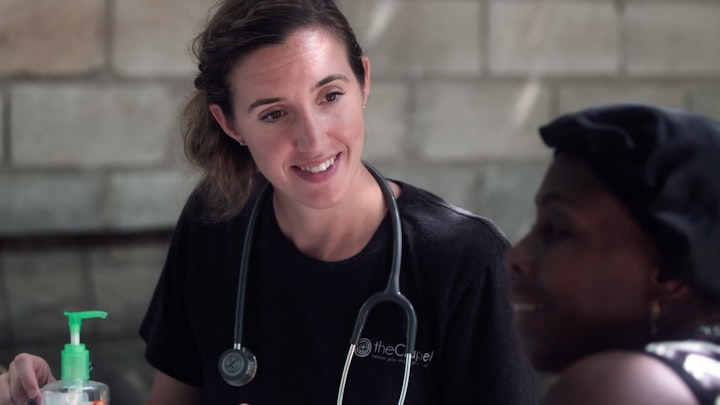
When it comes to leukemia, the first words that flash through many people's minds are "incurable", "chemotherapy", "bone marrow transplant", etc. In fact, in the leukemia family, there is a type of leukemia Chronic granulocytic leukemia (commonly known as "slow granulocyte"), can be said to be the "lucky" leukemia, because it is like hypertension, diabetes, is a treatable, controllable, and even through standard treatment can achieve a functional cure by stopping the drug! September 22 is the International Day of Slow Grains, so let's take this opportunity to learn more about the disease "slow grains".
Low fever, night sweats, spleen enlargement "slow particles" the onset of the initial symptoms of insidious
Wang, from Jurong, Zhenjiang, is a sophomore in high school. After the intense study, Wang likes to play basketball and run with his friends. After each exercise, Wang would sweat a lot, and he did not care, thinking it was a normal reaction after exercise. In this way, Wang's sweating became more and more frequent and serious, until one time during a physical examination arranged by the school, Wang found that his white blood cells and platelets were abnormally high.

The family didn't dare to be sloppy and rushed to Jiangsu Provincial People's Hospital (The First Affiliated Hospital of Nanjing Medical University) with their child to see the Department of Hematology. With years of clinical experience, Dr. Zhu Yu, deputy director and deputy chief physician of the Department of Hematology, felt that Wang's condition was not simple and arranged for more detailed examinations. The final test results showed that Wang was diagnosed with chronic granulocytic leukemia. When the family heard the news, it was like a bolt from the blue.
Ms. Fan's family from Nanjing had the same feeling as Wang's family. Ms. Fan had just gotten married and was preparing to have a baby with her lover. For some time, Ms. Fan found that her body was a little "fatter" than before, and she thought she might be pregnant at first, but the test results made her feel like the sky was falling. Ms. Fan's spleen was huge, her white blood cells exceeded 300×109/L, and she was finally diagnosed with "slow onset".
Fortunately, Wang and Fan were treated with oral targeted drugs and symptomatic treatment, and both achieved good results. "Some patients have fever and weakness and only find out that they have 'slow granules' when they go to the hospital for further examination. Many patients have elevated white blood cells found during routine physical examinations and are relatively insidious as they do not even know they have the disease. If you have abnormal blood indicators, you must go to the hematology department to avoid missing the diagnosis of 'slow particles'." Zhu Yu reminded.
"Slow particles are called "lucky cancer" and some patients can stop taking the drug after adequate treatment.
Both Wang and Zhang were lucky, because, with timely and standardized treatment, their "slow particles" were effectively controlled. Now Wang has returned to school and is a senior in high school, and is engaged in intense preparation for exams. Ms. Fan also successfully conceived and gave birth to a healthy baby girl under the careful care of the medical staff. There are many people like Wang and Chen who have their disease under control after taking regular medication and following up regularly, which is why slow-grain is also called the "lucky cancer" by many patients. What kind of disease is "slow grain"?
Zhu Yu introduced, "slow grain" leukemia as the first human tumor that has been proven to be related to chromosomal abnormalities. The International Slow Grain Day was chosen on September 22, precisely because of the reciprocal translocation of chromosomes 9 and 22 in the patient's body, forming a new gene - the BCR-ABL fusion gene. This gene interferes with the normal physiological functions of cells, leading to excessive cell proliferation and suppression of apoptosis, thus causing the development of the disease. Slow-onset leukemia accounts for about 15% of adult leukemias, and if left untreated, slow-onset patients can enter an accelerated, acute, or even life-threatening phase after 3 to 5 years.
At one time, "slow-onset" leukemia was an incurable disease, and in the movie "I am not a druggist," which has been on the Internet for several years, the disease around which the main story unfolds is "slow-onset. Now, with the emergence of targeted drugs, a new chapter in the treatment of "slow particles" has been opened. According to statistics, patients who are satisfactorily treated with targeted drugs can reach the life expectancy of normal people. Like hypertension and diabetes, "slow-grain" has become a treatable and controllable "chronic disease" that not only saves patients from transplantation and chemotherapy but also achieves better and more stable results than chemotherapy and bone marrow transplantation. Most of the patients will stay in the chronic stage with no uncomfortable symptoms and normal test results, and some of them can even stop taking the drug without relapse after adequate treatment and satisfactory results, achieving a "functional cure".
Nowadays, targeted drugs for the treatment of "slow particles" have been developed for the fourth generation, providing more options for patients who are resistant or intolerant to targeted drugs. In recent years, our country has gradually included most of the targeted drugs for the treatment of "slow particles" in the medical insurance catalog, which is good news for patients' treatment and greatly reduces the financial burden of patients' treatment, and the payment of medical insurance funds makes it possible for everyone to use targeted therapy.
Helping patients with "slow particles" to return to society, they need to pay attention in daily life
With the widespread use of targeted drugs, more and more "slow-grain" patients are close to normal people of the same age in terms of physical ability and survival, and can fully engage in normal study and work. However, in reality, many young patients still hide their disease, worrying that they will be looked at in a different light if they go public, which will cause resistance to further education and job hunting. Dr. Zhu Yu appealed to all sectors to work together to rebuild the confidence of "slow granuloma" patients and eliminate discrimination so that they can return to the "family" of society.
In addition to strengthening the care of "slow grain" patients, Zhu Yu also reminded the general public: in daily life, try to avoid immediately living in a house that has just been renovated. Before moving in, it is best to test the concentration of formaldehyde, benzene, and other chemical components; reduce the number of hair dyes, especially to avoid some poor quality hair dye; quit smoking and limit alcohol, and eat more fruits and vegetables; at the same time, also to maintain good habits, maintain a good mood, improve the body's immunity and resistance; encounter a cold, fever, soft tissue swelling and pain, remember to timely routine blood tests to prevent missed diagnosis "slow grains".






Comments
There are no comments for this story
Be the first to respond and start the conversation.